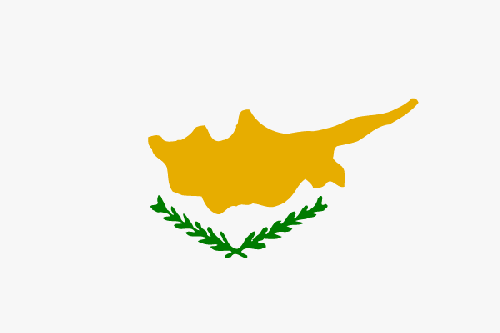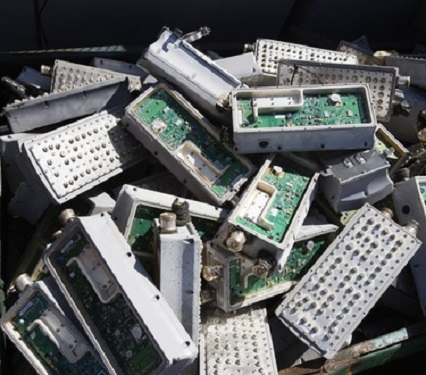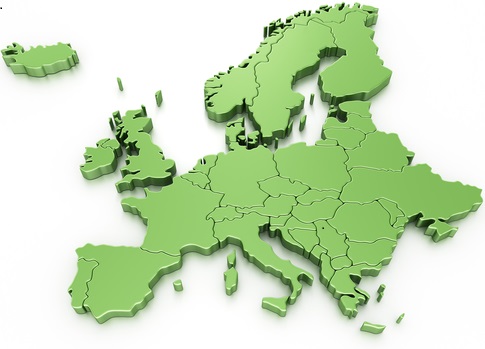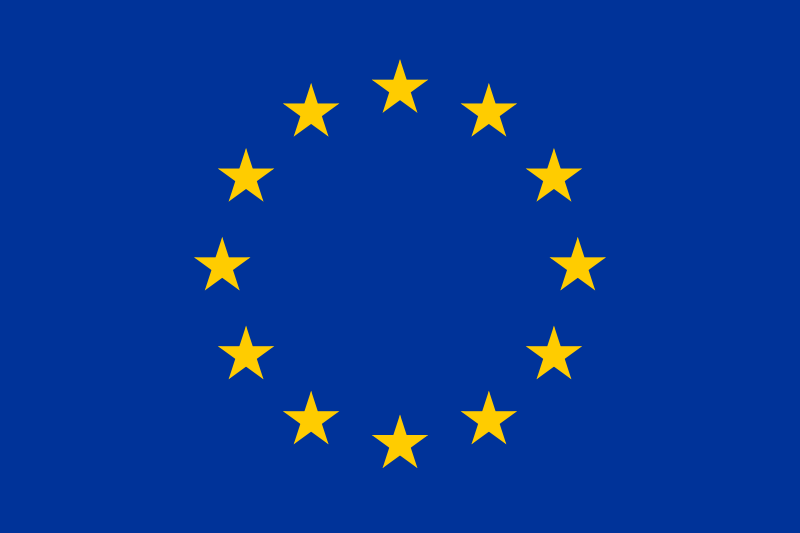Ihre Privatsphäre ist uns wichtig! Sie können entscheiden, welche Cookies Sie zulassen möchten. Weitere Informationen finden Sie in unserer Datenschutzerklärung. Sie können die erteilte Einwilligung jederzeit widerrufen.
Alisa Maier, Autor auf - Seite 20 von 24
22
Apr. 2015
Cyprus: Transposition of WEEE Recast
 With some delay, Cyprus has transposed the WEEE Recast Directive 2012/19/EU into national legislation: The Waste (Waste Electrical and Electronic Equipment) Regulation 73/2015 was officially published on March 13, 2015.
Based on the new WEEE Regulation, Cyprus has implemented the following:
– New producer definition, including direct sales to B2C and B2B end-users
– Authorized representative requirement
– 0:1 take-back obligation for small EEE for retailers with a sales area for EEE of more than 400m²
– Minimum requirements for shipment of used EEE/WEEE
– New WEEE categories applicable from August 15, 2018
– New collection target
With some delay, Cyprus has transposed the WEEE Recast Directive 2012/19/EU into national legislation: The Waste (Waste Electrical and Electronic Equipment) Regulation 73/2015 was officially published on March 13, 2015.
Based on the new WEEE Regulation, Cyprus has implemented the following:
– New producer definition, including direct sales to B2C and B2B end-users
– Authorized representative requirement
– 0:1 take-back obligation for small EEE for retailers with a sales area for EEE of more than 400m²
– Minimum requirements for shipment of used EEE/WEEE
– New WEEE categories applicable from August 15, 2018
– New collection target
09
Apr. 2015
1cc präsentiert auf dem E-Waste World Summit 2015 in Shanghai
On 09, Apr. 2015 | In Veranstaltungen | By Alisa Maier
 Vom 15. – 17. April 2015 findet in Shanghai, China, der “3rd e-Waste World Summit 2015“ statt.
Auf dieser Recycling-Konferenz für elektronische Geräte wird 1cc Beraterin Yun Zhang aus unserem Shanghaier Büro am
16. April 2015 zum Thema „WEEE Compliance and Recast in Europe“ vortragen.
Wir freuen uns, Sie auf der Konferenz zu treffen.
Weitere Informationen: www.e-wasteworld.com
Vom 15. – 17. April 2015 findet in Shanghai, China, der “3rd e-Waste World Summit 2015“ statt.
Auf dieser Recycling-Konferenz für elektronische Geräte wird 1cc Beraterin Yun Zhang aus unserem Shanghaier Büro am
16. April 2015 zum Thema „WEEE Compliance and Recast in Europe“ vortragen.
Wir freuen uns, Sie auf der Konferenz zu treffen.
Weitere Informationen: www.e-wasteworld.com
27
März 2015
Handel muss Elektro-Altgeräte kostenlos zurücknehmen
 Verbraucher werden zukünftig ihre alten Elektro-Altgeräte wie Laptops, Radios oder Staubsauger kostenlos in Elektrogeschäften zurückgeben können, wenn sie dort ein neues, vergleichbares Gerät kaufen.
Kleinere Elektro-Altgeräte dürfen in Zukunft auch ohne Neukauf abgegeben werden. Letztere Regelung wird jedoch nur für größere Händler mit einer Verkaufsfläche von mehr als 400 Quadratmetern gelten, außerdem für größere Online-Händler.
Die neuen Rücknahmeverpflichtungen werden durch die Reform des deutschen Elektrogesetzes (ElektroG) geregelt, das Ende dieses Jahres in Kraft treten soll. Damit werden die Änderungen der WEEE Richtlinie 2012/19/EU über Elektro- und Elektronikaltgeräte (WEEE Recast Directive) umgesetzt, die 2012 in Kraft trat. Wie weitere EU-Mitgliedsstaaten auch, ist Deutschland mit der Umsetzung im Verzug, denn diese hätte eigentlich bis zum 14. Februar 2014 erfolgen sollen.
Neben den verschärften Rücknahmeverpflichtungen für den Handel, sieht die WEEE-Richtlinie ab nächstem Jahr neue Sammelquoten für Elektroschrott vor, die 2019 nochmals verschärft werden. Die Sammelquote soll dann bei 65 Prozent liegen. Außerdem wird der Anwendungsbereich ab 2018 auf alle Elektro- und Elektronikgeräte erweitert.
Verbraucher werden zukünftig ihre alten Elektro-Altgeräte wie Laptops, Radios oder Staubsauger kostenlos in Elektrogeschäften zurückgeben können, wenn sie dort ein neues, vergleichbares Gerät kaufen.
Kleinere Elektro-Altgeräte dürfen in Zukunft auch ohne Neukauf abgegeben werden. Letztere Regelung wird jedoch nur für größere Händler mit einer Verkaufsfläche von mehr als 400 Quadratmetern gelten, außerdem für größere Online-Händler.
Die neuen Rücknahmeverpflichtungen werden durch die Reform des deutschen Elektrogesetzes (ElektroG) geregelt, das Ende dieses Jahres in Kraft treten soll. Damit werden die Änderungen der WEEE Richtlinie 2012/19/EU über Elektro- und Elektronikaltgeräte (WEEE Recast Directive) umgesetzt, die 2012 in Kraft trat. Wie weitere EU-Mitgliedsstaaten auch, ist Deutschland mit der Umsetzung im Verzug, denn diese hätte eigentlich bis zum 14. Februar 2014 erfolgen sollen.
Neben den verschärften Rücknahmeverpflichtungen für den Handel, sieht die WEEE-Richtlinie ab nächstem Jahr neue Sammelquoten für Elektroschrott vor, die 2019 nochmals verschärft werden. Die Sammelquote soll dann bei 65 Prozent liegen. Außerdem wird der Anwendungsbereich ab 2018 auf alle Elektro- und Elektronikgeräte erweitert.
27
Feb. 2015
Spain: National Transposition of WEEE Recast
 Spain was one of the EU member states which were delayed in transposing the EU WEEE Recast: Finally, on last Saturday, February 21, 2015, “Real Decreto 110/2015, sobre residuos de aparatos eléctricos y electrónicos” (Royal Decree 110/2015) was officially published in the Spanish Official Gazette. With this Decree, Spain has finally transposed the WEEE Directive 2012/19/EU into national law.
A deeper analysis of the new Spanish Decree will show which are the national specifications and changes. We will provide you soon with more information.
Spain was one of the EU member states which were delayed in transposing the EU WEEE Recast: Finally, on last Saturday, February 21, 2015, “Real Decreto 110/2015, sobre residuos de aparatos eléctricos y electrónicos” (Royal Decree 110/2015) was officially published in the Spanish Official Gazette. With this Decree, Spain has finally transposed the WEEE Directive 2012/19/EU into national law.
A deeper analysis of the new Spanish Decree will show which are the national specifications and changes. We will provide you soon with more information.
13
Feb. 2015
WEEE Recast Directive 2012/19/EU: Some states are still missing
 EU Member States have to adopt national laws, regulations and administrative provisions necessary to comply with the new Directive 2012/19/EU of 4 July 2012 on waste electrical and electronic equipment (WEEE Recast Directive).
The deadline for transposition was 14 February 2014. Today, one year after that day, only 20 of the states have adopted the necessary legal provisions.
In Belgium only one of the three regions, namely Flanders, has transposed the Recast. Cyprus, Germany, Poland, Romania, Slovakia and Spain only have drafts available. In Slovenia not even a draft has been published yet.
EU Member States have to adopt national laws, regulations and administrative provisions necessary to comply with the new Directive 2012/19/EU of 4 July 2012 on waste electrical and electronic equipment (WEEE Recast Directive).
The deadline for transposition was 14 February 2014. Today, one year after that day, only 20 of the states have adopted the necessary legal provisions.
In Belgium only one of the three regions, namely Flanders, has transposed the Recast. Cyprus, Germany, Poland, Romania, Slovakia and Spain only have drafts available. In Slovenia not even a draft has been published yet.
15
Jan. 2015
1cc präsentiert auf dem IERC Kongress in Salzburg
On 15, Jan. 2015 | In Veranstaltungen | By Alisa Maier
15
Jan. 2015
Copyright Levies: Cascade of levy system abolishments to be expected?
On 15, Jan. 2015 | In Copyright Levies, News | By Alisa Maier
 While some countries around the world have created or expanded on their existing copyright levy systems, another European country has abolished its system as of January 1, 2015: Finland repealed the legal basis of the copyright levies on blank media & recording devices. Instead, the authors will be compensated via a fund paid out of the state budget. After the Finnish levy tariffs have remained unchanged for the last two years, the parliament voted in December to replace the Copyright Levy system by a government fund. From now on, no copyright levies should be paid anymore in Finland. In 2012 the Spanish Government decided to abolish its copyright levy system, establishing and replacing it by a different one, comparable to the Norwegian system, where levies are calculated into the state budget. In Estonia, a similar system is now in the planning phase.
Basically, device- and media-based copyright levy systems are a matter of fervent controversies in all countries in which they are implemented. Nevertheless, their abolishment can be considered critical: The question of (the estimated) harm for right holders caused by private copying remains and, with it, the question of its compensation. A state budget being nothing but tax revenue, every author would rely on government aid. In fact, the harm is to be taken into account and, in the absence of a copyright levy system, he will simply be financed from other sources. The authorities will raise their claims elsewhere. Does it have anything to do with the fact that the Spanish authority tried to claim excessive fees for licensing recently? It seems as if the controversy just shifted somewhere else.
While some countries around the world have created or expanded on their existing copyright levy systems, another European country has abolished its system as of January 1, 2015: Finland repealed the legal basis of the copyright levies on blank media & recording devices. Instead, the authors will be compensated via a fund paid out of the state budget. After the Finnish levy tariffs have remained unchanged for the last two years, the parliament voted in December to replace the Copyright Levy system by a government fund. From now on, no copyright levies should be paid anymore in Finland. In 2012 the Spanish Government decided to abolish its copyright levy system, establishing and replacing it by a different one, comparable to the Norwegian system, where levies are calculated into the state budget. In Estonia, a similar system is now in the planning phase.
Basically, device- and media-based copyright levy systems are a matter of fervent controversies in all countries in which they are implemented. Nevertheless, their abolishment can be considered critical: The question of (the estimated) harm for right holders caused by private copying remains and, with it, the question of its compensation. A state budget being nothing but tax revenue, every author would rely on government aid. In fact, the harm is to be taken into account and, in the absence of a copyright levy system, he will simply be financed from other sources. The authorities will raise their claims elsewhere. Does it have anything to do with the fact that the Spanish authority tried to claim excessive fees for licensing recently? It seems as if the controversy just shifted somewhere else.
18
Dez. 2014
WEEE Regulations in UK – Classification of Dual Use Equipment will Change
 Following the new WEEE Regulations in UK, beginning with January 1, 2016, any electrical and electronic equipment which can be used by both households as well as business users (‘dual use’) has to be classified as household equipment (B2C).
For producers whose electrical and electronic equipment is re-classified as B2C this means:
• Producers will have to provide the sales data in accordance with the new classifications beginning with January 1, 2015. This is required in order to calculate the obligations for 2016.
• Since the invoicing for the volumes put on the market in 2015 takes place in 2016, producers might have to face an additional B2C financial obligation up from January 2016.
• Producers need to change registration with the Environment Agency. This has to be done prior to the data submission for the first quarter of 2015.
Following the new WEEE Regulations in UK, beginning with January 1, 2016, any electrical and electronic equipment which can be used by both households as well as business users (‘dual use’) has to be classified as household equipment (B2C).
For producers whose electrical and electronic equipment is re-classified as B2C this means:
• Producers will have to provide the sales data in accordance with the new classifications beginning with January 1, 2015. This is required in order to calculate the obligations for 2016.
• Since the invoicing for the volumes put on the market in 2015 takes place in 2016, producers might have to face an additional B2C financial obligation up from January 2016.
• Producers need to change registration with the Environment Agency. This has to be done prior to the data submission for the first quarter of 2015.
17
Dez. 2014
Six new SVHCs added to the REACH Candidate List and one entry updated
 Today, six new SVHCs have been added to the REACH Candidate List by ECHA; and one existing entry has been updated.
Cadmium fluoride and cadmium sulphate are added to the Candidate List as being “Carcinogenic”, “Mutagenic”, “Toxic for reproduction” and are also identified as being of „Equivalent level of concern based on probable serious effects to human health“ (specifically due to the effects on kidney and bone).
Two benzotriazole substances (UV-320 and UV-328) are identified as being “persistent bioaccumulative and toxic and very persistent and very bioaccumulative (PBT/vPvB)”.
Two further substances, DOTE and the reaction mass of DOTE and MOTE are identified as being “Toxic for reproduction”.
The Member State Committee also unanimously agreed that bis(2-ethylhexyl) phthalate (DEHP) meets the criteria for identification as an SVHC under Article 57(f) due to its endocrine disrupting properties causing probable serious effects to the environment. As DEHP is already included in the Candidate List based on its toxic for reproduction properties, this entry will be updated to address the additional reason for inclusion.
As DEHP is already listed in the Authorisation List (Annex XIV), companies that were initially exempt from the authorisation requirement may, in the future, be subject to authorisation. However, before this could happen, the European Commission would need to amend the corresponding entry for DEHP in the Authorisation List.
Today, six new SVHCs have been added to the REACH Candidate List by ECHA; and one existing entry has been updated.
Cadmium fluoride and cadmium sulphate are added to the Candidate List as being “Carcinogenic”, “Mutagenic”, “Toxic for reproduction” and are also identified as being of „Equivalent level of concern based on probable serious effects to human health“ (specifically due to the effects on kidney and bone).
Two benzotriazole substances (UV-320 and UV-328) are identified as being “persistent bioaccumulative and toxic and very persistent and very bioaccumulative (PBT/vPvB)”.
Two further substances, DOTE and the reaction mass of DOTE and MOTE are identified as being “Toxic for reproduction”.
The Member State Committee also unanimously agreed that bis(2-ethylhexyl) phthalate (DEHP) meets the criteria for identification as an SVHC under Article 57(f) due to its endocrine disrupting properties causing probable serious effects to the environment. As DEHP is already included in the Candidate List based on its toxic for reproduction properties, this entry will be updated to address the additional reason for inclusion.
As DEHP is already listed in the Authorisation List (Annex XIV), companies that were initially exempt from the authorisation requirement may, in the future, be subject to authorisation. However, before this could happen, the European Commission would need to amend the corresponding entry for DEHP in the Authorisation List.
08
Dez. 2014
Austria: Copyright Levies System still under Discussion
On 08, Dez. 2014 | In Copyright Levies, News | By Alisa Maier


